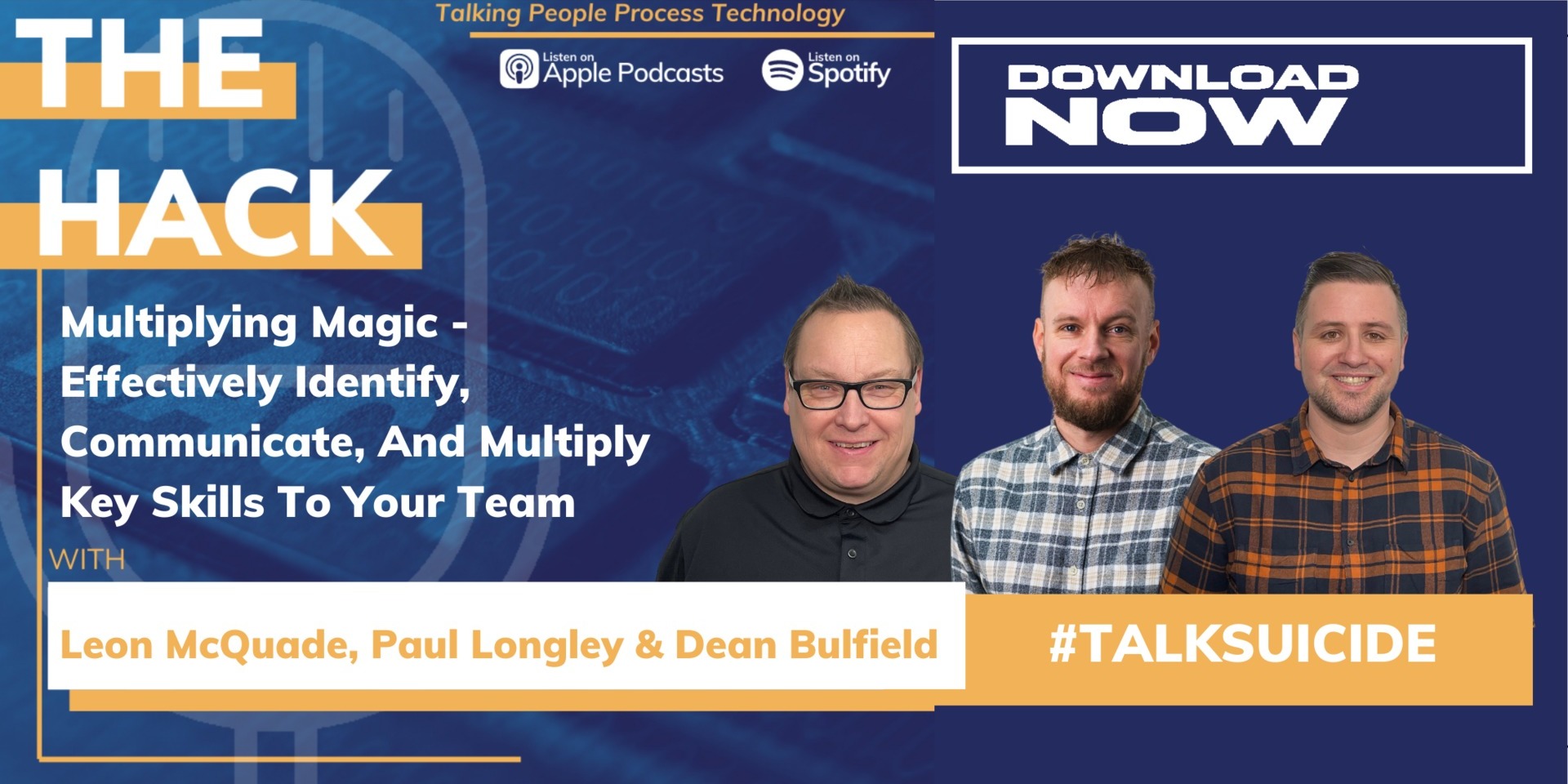How to Effectively Identify, Communicate, And Multiply Key Skills To Your Team
On this week's straight-talking smart tech podcast, The Hack join hosts Leon, Paul and Dean
100X LEADER Multiplying Magic
In this episode of the 100x Leader podcast, Leon, Dean, and Paul discuss identifying and multiplying what you do well for your team. They explore strategies for identifying key skill sets and multiplying them effectively so everyone on the team can benefit. They also discuss the importance of recognizing any assumptions we may have as leaders that might not benefit the team.
As a leader, you know that your experience and expertise can be invaluable in helping those on your team succeed. You may have built up many skills and perspectives over the years, but it's not always easy to pass them on to others. As a Sherpa, you are the one going ahead of your people and preparing the way – In this episode, the boys explore how you can leverage your experience to develop your team and ensure they have the skills and knowledge to do their job well.
What is your "Super Power"?
The skills, perspectives and techniques you have gained over the years are what has helped you to succeed. These "Super Powers" are invaluable and can be used to support your team to reach their full potential. But before you can make the magic happen, you need to effectively identify, Communicate, And then Multiply those Key Skills!
We all have skills, habits and behaviours we are competent at but unaware of. You do it without thinking. Unconsciously competent learners have learned to carry out a task without consciously thinking about it. They can do the job quickly and accurately, but if asked to explain the steps they take to complete the task, they cannot articulate them. An excellent example of this is driving a car. After going for a while, you no longer have to think about the steps required to complete the task. You can do it without thinking.
Belbin's Team Roles
During the show, Leon touches briefly on Belbin's Team Roles, a set of behaviours people can adopt when working in teams. They were developed by Dr Meredith Belbin in the 1970s and have been widely adopted since.
Paul explains how he is a guardian at heart; he is highly organized and analytical. He pays close attention to detail, taking the time to carefully think through every step before executing a plan of action. Paul keeps track of what works and doesn't continuously refine processes and procedures for better efficiency.
Leon likes connecting people; he is a visionary leader who can make decisions quickly and accurately without consciously thinking about them. Additionally, his intuition allows him to anticipate potential problems before they occur, enabling him to take preventative steps early to avoid them altogether.
Deans is a nurturer and enjoys helping others develop and grow. He can build relationships quickly, inspiring trust and loyalty. Dean is also highly empathetic, understanding the needs and feelings of those around him. He is an excellent listener and uses his intuition when offering advice and resolving conflicts.
Understanding which roles work best together is essential for any team to be successful. Belbin's Team Roles can help you identify how each individual can contribute to the greater whole. By understanding the different roles and adapting them for your teams, you can get the most out of everyone's skill set and increase team productivity.
The Key is to be aware of these unconscious competencies to communicate and multiply them to your team effectively. By understanding what makes you successful in a particular area, you can quickly identify what skills are needed for your team to replicate this success.
Identifying What You Do Well
The first step in leveraging your experience is identifying what you do well. This could include problem-solving skills, communication strategies, or even conflict-resolution techniques. You must take the time to think about what makes you successful as a leader so that you can share these insights with your team members.
Multiplying What You Do Well
Once you've identified what makes you successful, it's time to start sharing these insights with others on your team. This could include providing feedback when someone else isn't performing as well as expected or offering advice during challenging situations. It might also involve teaching someone new methods for resolving conflict or better handling customer inquiries. The Key here is to focus on multiplying what you do well so that others can benefit from the same strategies and approaches that have worked for you in the past.
Identifying Assumptions You May Have
When working with our teams, we can easily make assumptions about how things should be done without explicitly communicating those expectations with our people. That's why leaders need to take the time to identify any underlying assumptions about how tasks should be completed or decisions should be made before sharing them with their teams. Doing this will help ensure everyone is on the same page and effectively working towards the same goals.
Conclusion
Being an effective leader means understanding what makes you successful so that you can pass this knowledge on to your team members with intentionality, clarity, and effectiveness. Taking the time to identify critical skill sets needed for success is essential for equipping others with the tools they need; however, creating an environment where learning can take place through collaboration and trust between individuals is equally important.
Identifying and communicating any assumptions you may have is essential for ensuring everyone is on the same page and working towards a shared goal and vision.
By leveraging your experience and multiplying what you do well, you can ensure that your team is better equipped to succeed now and in the future!
Sponsored by: Talk suicide
Powered By: Think Cloud
Tagged as: 100x Leadership, The Hack Podcast
Share this post:

